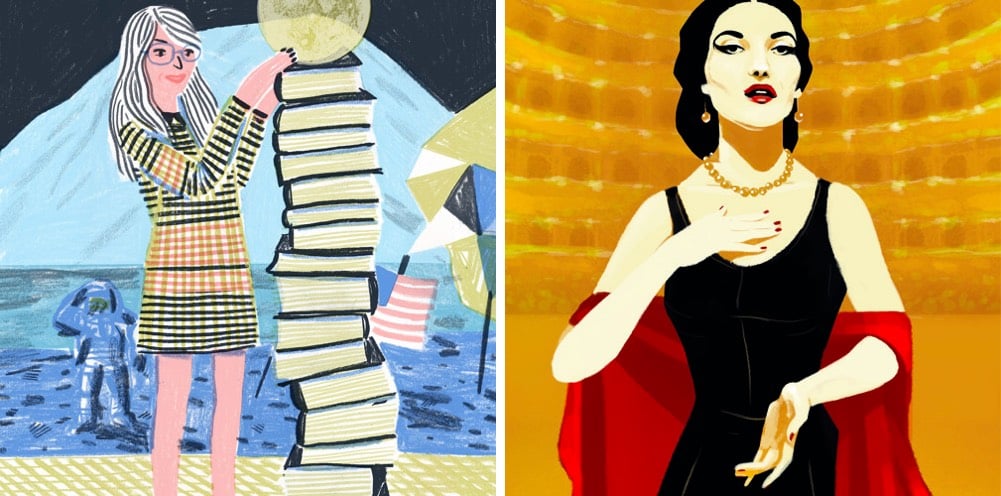The story goes that modern chaos theory was birthed by Edward Lorenz’s paper about his experiments with weather simulation on a computer. The computing power helped Lorenz nail down hidden patterns that had been hinted at by computer-less researchers for decades. But the early tenets of chaos theory were not the only things that were hidden. The women who wrote the programs that enabled Lorenz’s breakthroughs haven’t received their proper due.
But in fact, Lorenz was not the one running the machine. There’s another story, one that has gone untold for half a century. A year and a half ago, an MIT scientist happened across a name he had never heard before and started to investigate. The trail he ended up following took him into the MIT archives, through the stacks of the Library of Congress, and across three states and five decades to find information about the women who, today, would have been listed as co-authors on that seminal paper. And that material, shared with Quanta, provides a fuller, fairer account of the birth of chaos.
The two women who programmed the computer for Lorenz were Ellen Gille (née Fetter) and Margaret Hamilton. Yes, that Margaret Hamilton, whose already impressive career starts to look downright bonkers when you add in her contributions to chaos theory.
Audiobooks for both of the bestselling Good Night Stories for Rebel Girls books will be out in June: book one, book two. The bedtime fairy tale style of these stories are perfect for the audiobook format.

My daughter and I took a car trip recently and to pass the time, we listened to the first few episodes of the relatively new Good Night Stories for Rebel Girls podcast. Great podcast. Each episode is 15-20 minutes long and features the biographical story of a kickass woman told in the style of a bedtime story…the stories are expanded versions of the ones found in the books. Here’s the first episode about computer scientist Margaret Hamilton, who led the team that wrote the on-board flight software for the Apollo space program. [Edit: Not sure why, but the Hamilton episode is no longer available on Soundcloud. Here’s the Billie Jean King ep instead.]
The narrators include women like Diana Nyad, Our Lady J, Poorna Jagannathan, and S. Mitra Kalita, all of whom are deserving of episodes in their own right.
We listened to all five available episodes back-to-back and Minna let out a big “awwww” when I told her there weren’t any more. She’s 8, loves the books,1 and I think she’s already somewhat aware that many of the stories in movies, TV, and books are not for her (and are thus not as interesting). The situation has gotten better in recent years, but many contemporary stories are still written from the perspective of boys for boys. So when something like Rebel Girls (or Wonder Woman or Lego Elves series) comes along, she’s really excited for stories and characters she can identify with. Representation matters. I have to believe that this generation of girls having access to these kinds of stories is making a difference. Both my kids have heard many more stories about (and made by!) high-achieving women than my sister and I ever did at home or in school. Minna knows, in a way that most little girls from 20-30 years ago didn’t, that she can be a computer programmer, a world leader, an astronaut, the best entertainer in the world, a physicist, or even book publishers…anything she wants really. And just as importantly, she knows how difficult it was for those women to achieve those things, the extra effort they went through to excel in “a man’s world” (the podcast episodes about Billie Jean King, Margaret Hamilton, and Virginia Hall all make specific mention of this). I love this series…I hope they make 100 more of these books and 10 seasons of the podcast.
P.S. Craig Mod recently interviewed Rebel Girls co-creator Elena Favilli for his On Margins podcast. Worth a listen if you want to learn how the series came about.






Stay Connected